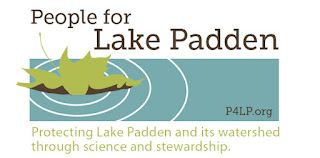FOR IMMEDIATE USE
CONTACT:
Brian Gorman, National Marine Fisheries Service, (206) 526-6613
Lara Sloan, Fisheries and Oceans Canada, (250) 363-3749
Linda Nishida, Vancouver Aquarium, (604) 659-3777
Donna Sandstrom, The Whale Trail, (206) 919-5397
Mary Borrowman, (250) 928-3187
10TH ANNIVERSARY OF ORPHAN WHALE SPRINGER RESCUE CELEBRATED
IN JUNE AND JULY IN VANCOUVER, SEATTLE AND JOHNSTONE STRAIT
IN JUNE AND JULY IN VANCOUVER, SEATTLE AND JOHNSTONE STRAIT
 |
| Springer, 2002 (Photo: Mark Sears) |
This summer, the rescue of Springer, also known as A73, of Canada’s Northern Resident killer whale population, will be celebrated in June and July with three events featuring first-hand accounts of Springer’s rescue and reunion with her pod, updates on the status of orca populations and scientific research, and how citizens can help in whale conservation and recovery efforts.
Events include an evening celebration open to the public (registration required) at the Vancouver Aquarium on Tuesday, June 12 at 7PM; an afternoon public program at Seattle’s Alki Beach Bathhouse on Saturday, June 23 at 11 AM; and a 10th anniversary reunion at Telegraph Cove, B.C., from July 12 to 15.
“We’ve come far in what we know about our killer whale neighbours since the rescue of Springer and her reunion with her family, but there’s so much more we have yet to learn,” said Lance Barrett-Lennard, marine mammal scientist at the Vancouver Aquarium.
Springer, a two-year old orphan, appeared 10 years ago in Puget Sound near Vashon Island after becoming separated from her family. Three hundred miles from home, the little orca captured international attention and galvanized community support for a relocation effort.
Concerned about her weakening health and increasing human interactions, National Oceanic and Atmospheric Administration (NOAA) Fisheries, Fisheries and Oceans Canada (DFO), and Vancouver Aquarium mounted the first-ever orca relocation project.
Springer was rescued near Seattle on June 12, 2002, and was rehabilitated in a holding pen in Manchester, Washington.
“The decision to rescue Springer was not an easy one to make,” said Will Stelle, director of NOAA Fisheries’ Northwest regional office in Seattle. “There were risks and unknowns every step of the way. In the end, we were successful because we worked as a team. Community involvement and support were a key part of the project.”
On July 13, Springer was transported in a donated jet catamaran from Washington to a holding pen 250 miles to the north in Johnstone Strait.
After being lowered into her holding pen in Dong Chong Bay on Hanson Island, Springer was welcomed home by Chief Bill Cranmer and other members of the Namgis Band.
Less than 24 hours later, her pod swam by the release site, and she was returned to the wild on July 14, 2002.
“Many things came together to make the reunion a success,” said John Ford, DFO marine mammal scientist. “The donation of a jet catamaran allowed us to get her home quickly. Her family showed up much sooner than anyone expected. She eventually was able to keep up with them and, by the end of the summer, she was acting like a normal whale.”
Today, Springer is healthy and fully integrated with her extended family, and has returned each year to their summering grounds in Johnstone Strait where a 4-day reunion will be held in July.
“There’s a lot of ‘magic’ in Springer’s story,” said Donna Sandstrom, director of The Whale Trail and organizer of the June 23 Seattle celebration event which will also feature unveiling of the latest Whale Trail signs in West Seattle.
“To get her home, we had to learn how to work together. Today, we have not just one whale to save but an entire population of Southern Resident orcas. We hope Springer’s success will inspire people to become engaged with issues facing orcas today,” said Sandstrom.
For more information on the Springer 10th anniversary events, go to The Whale Trail.
# # #






